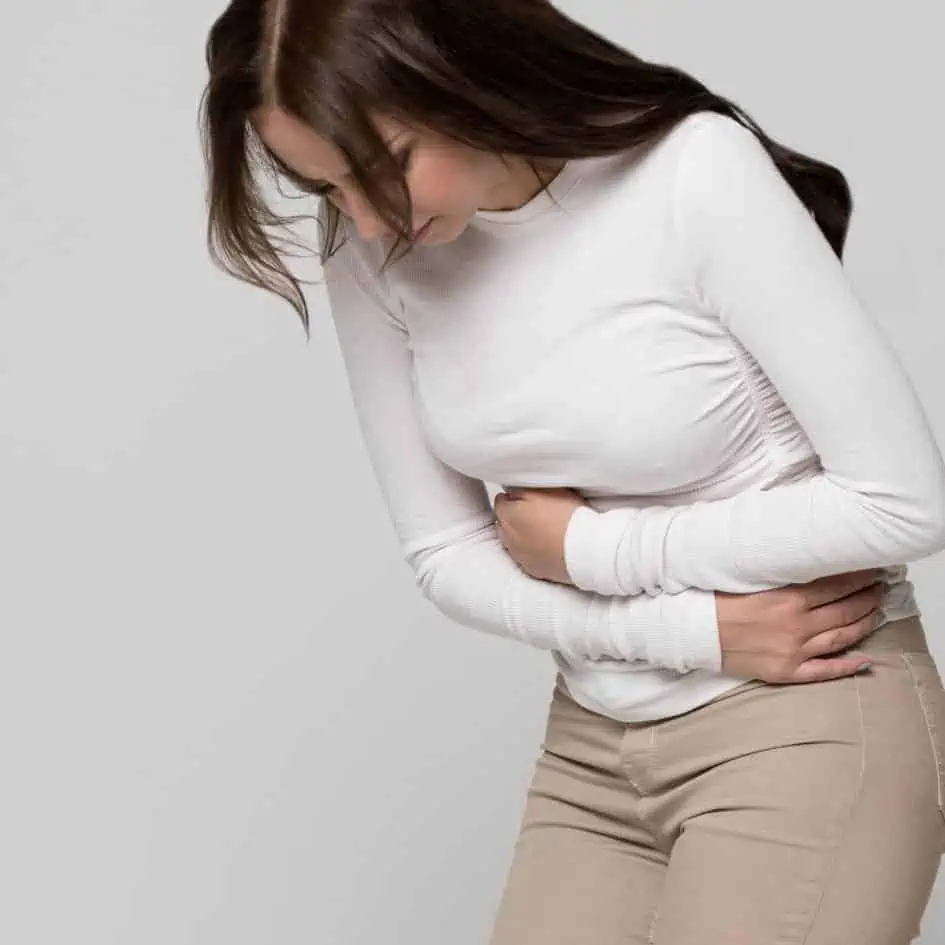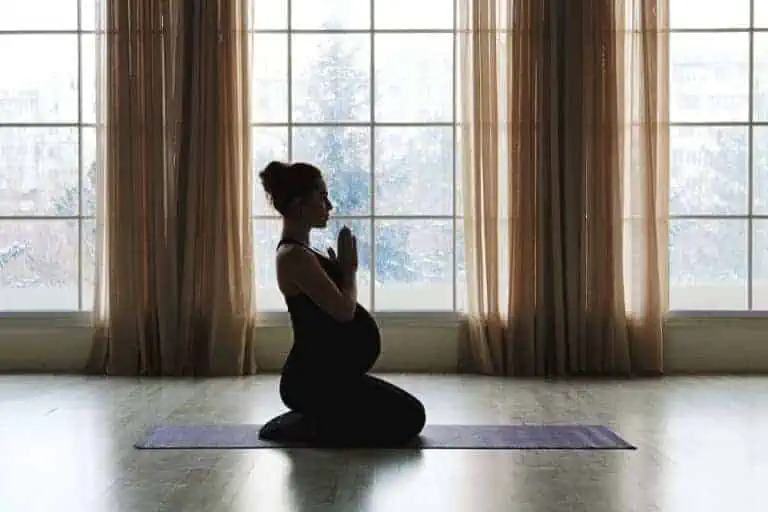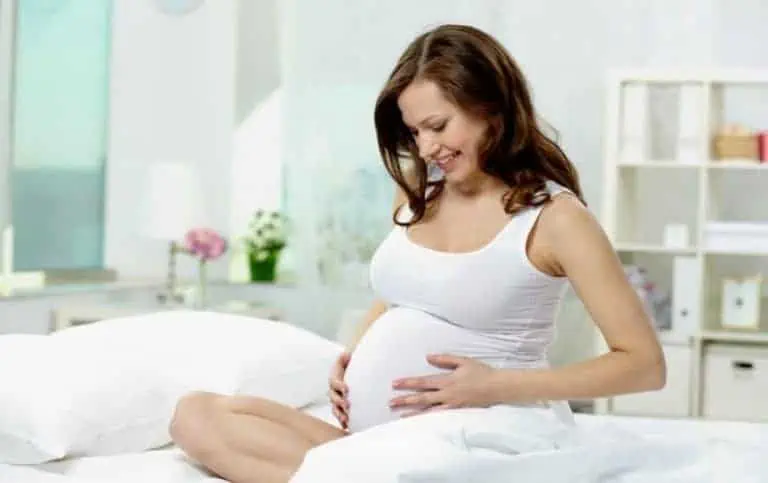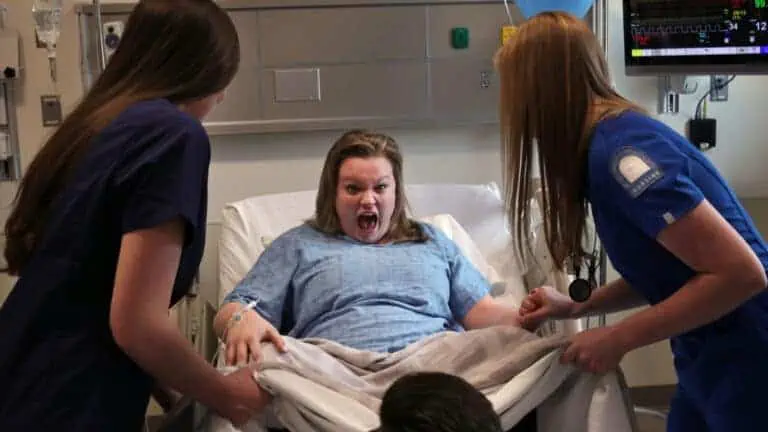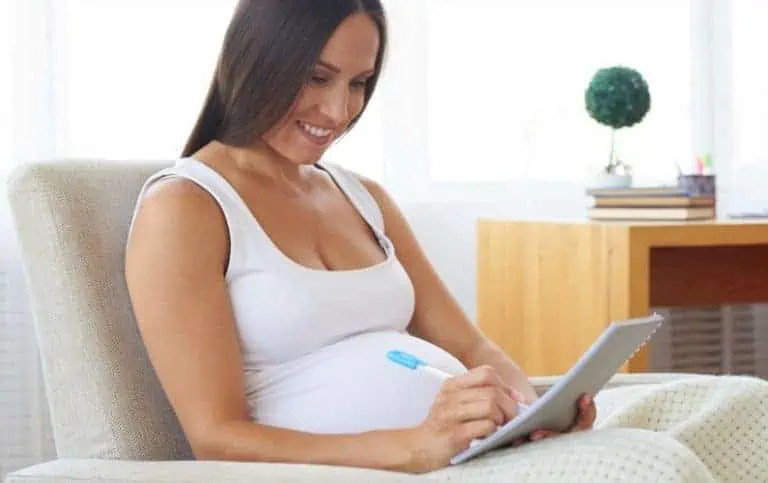PMS VS Pregnancy Symptoms: How To Tell The Difference
This post may contain affiliate links. As an Amazon Associate, I earn from qualifying purchases.
Mommas, are you experiencing mood swings, tender breasts, food cravings, fatigue, and irritability?
Then out of excitement, you start to get your baby’s nursery ready because you believe you could be pregnant, only to get your menstrual flow a few days later. Sometimes, knowing the difference between PMS and pregnancy symptoms may be confusing.
Many early pregnancy symptoms overlap with other medical conditions, especially premenstrual syndrome, so much so that it is often difficult to tell the difference between PMS vs pregnancy symptoms.
The easiest way to know if you are pregnant is to take a home test requiring you to pee on a stick or to take a pregnancy blood test at your doctor’s office if needed.
Read below on how to tell the difference between PMS symptoms and that of early pregnancy.
RELATED READ: 70 Early Signs of Pregnancy
My personal story of PMS vs pregnancy symptoms
Four years ago, around November, I was expecting my menstrual bleeding. It never missed its schedule like clockwork.
Usually, a few days before it begins, I experience breast pain that would last only a day, but this one was different. It persisted for days. I felt very uncomfortable and went for a breast ultrasound scan. The result came back normal.
It was not until I looked at my period journal that I realized I was a few days late, and I went to the pharmacy store to buy a home pregnancy test kit. To my surprise, it was positive.
My little girl will be four in July, and I smile every time I remember the dilemma. Because at that moment, I could not tell apart premenstrual syndrome from early pregnancy symptoms, even as a doctor.
What is PMS?
Premenstrual syndrome (PMS) refers to the physical and/or psychological symptoms many women experience month after month in the days before menstruation (your period) that may affect their daily lives.
For the symptoms to qualify as PMS, they should happen during the luteal phase of the menstrual cycle. This phase usually lasts two weeks, beginning at ovulation and finishing when menstruation begins.
PMS symptoms can be similar to those experienced in early pregnancy, such as breast pains, nausea, cramping, mood changes, anxiety, and irritability.
If the symptoms are more severe than that, it could be a premenstrual dysphoric disorder or PMDD.
How to tell the difference: PMS vs. pregnancy symptoms
Breast changes
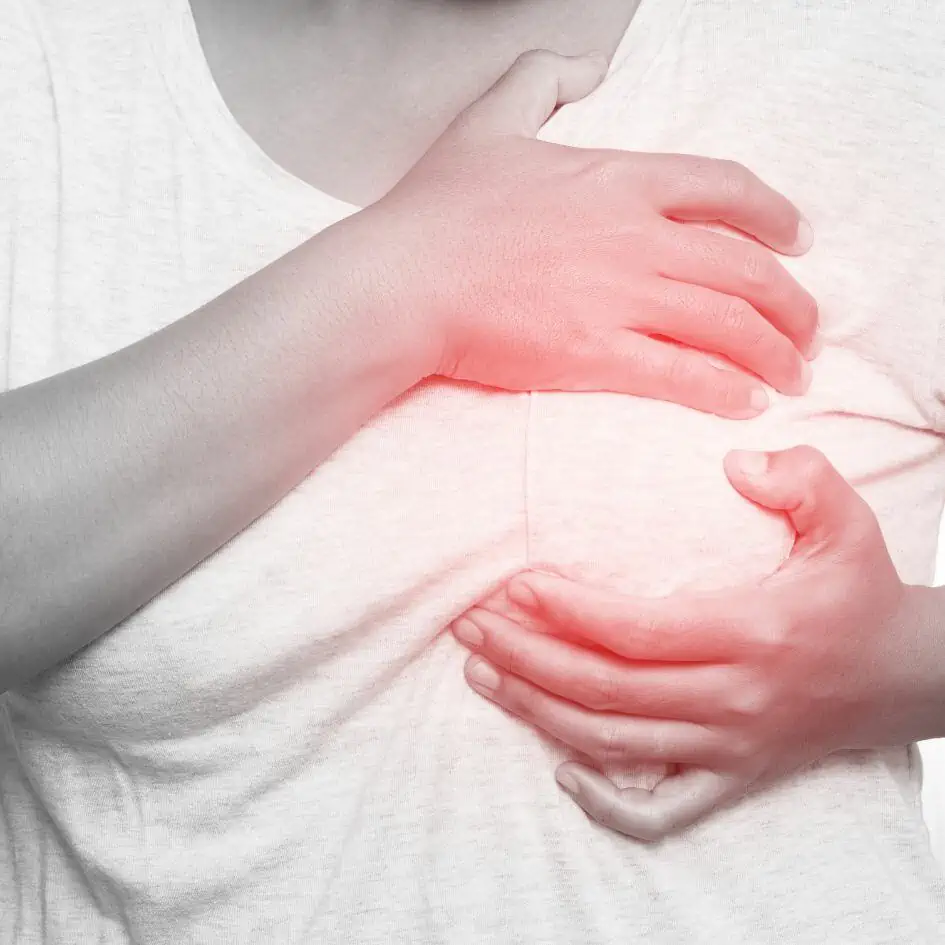
- PMS: During PMS, you may experience breast tenderness and fullness because your body produces more of the hormone progesterone. Once your menstrual period begins, your hormone levels balance and the discomfort usually disappears.
- Pregnancy: Your breasts may feel sore, sensitive, tender, and fuller in the early stages of pregnancy. You may notice it one to two weeks after you conceive, and it lasts for a while as your body produces more progesterone to sustain the pregnancy.
Bleeding or spotting
- PMS: You ideally should not bleed or spot during PMS. Bleeding begins when you have your menstrual period.
- Pregnancy: For many women, one of the first signs of pregnancy is light bleeding or spotting (the color is usually pink or dark brown). Another word for spotting is implantation bleeding – a light bleeding thought to happen when the fertilized egg or embryo implants into the uterine wall about 10 to 14 days after conception. It usually lasts no more than two days. But if the spotting continues for longer than two days, you should schedule an appointment with a doctor immediately.
RELATED READ: 100+ of the Best Tips for a Healthy Pregnancy: By Category!
Cramping
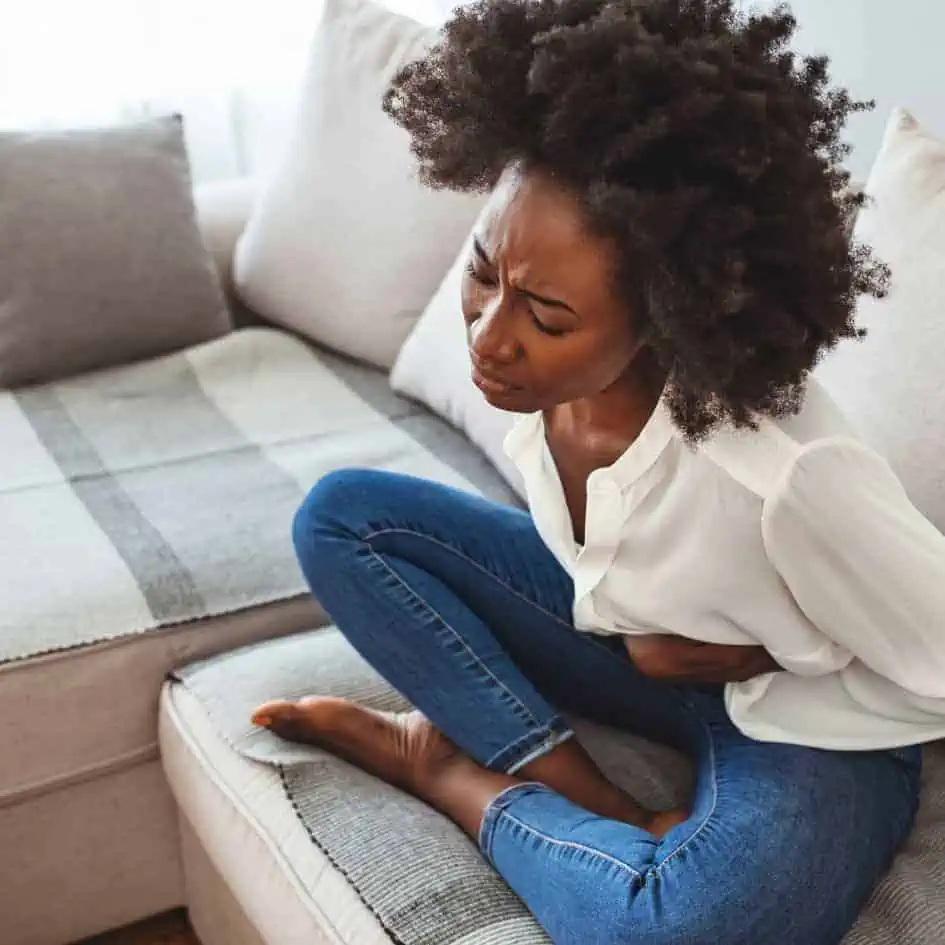
- PMS: Cramping is a common symptom of PMS, usually occurring a day or two before menstruation. The pain will probably decrease during your period and eventually stop by the end of your menstrual bleeding.
- Pregnancy: During your pregnancy, you may experience mild or light cramping. These cramps should not bother you and only last a few weeks, sometimes months. Resting typically helps ease the pain. However, if the early pregnancy cramps coincide with heavy bleeding or you have a history of pregnancy loss, it is best to see a doctor.
Mood swings

- PMS: You may feel irritable, a bit grumpy, and even have crying spells during PMS because of hormonal fluctuations during the menstrual cycle. These symptoms typically go away after your period starts.
- Pregnancy: Pregnancy affects your mood because of hormonal changes during each trimester. Trivial things like watching an emotional movie can make you cry. On other days you may be bubbly with excitement and happiness. Pregnancy will definitely turn you into a cocktail of varying emotions. Try exercising and getting plenty of sleep to help take the edge off of your PMS or pregnancy moodiness. However, if you feel sad, overwhelmed, hopeless, or concerned about your emotions, speak to a mental health doctor.
Food cravings
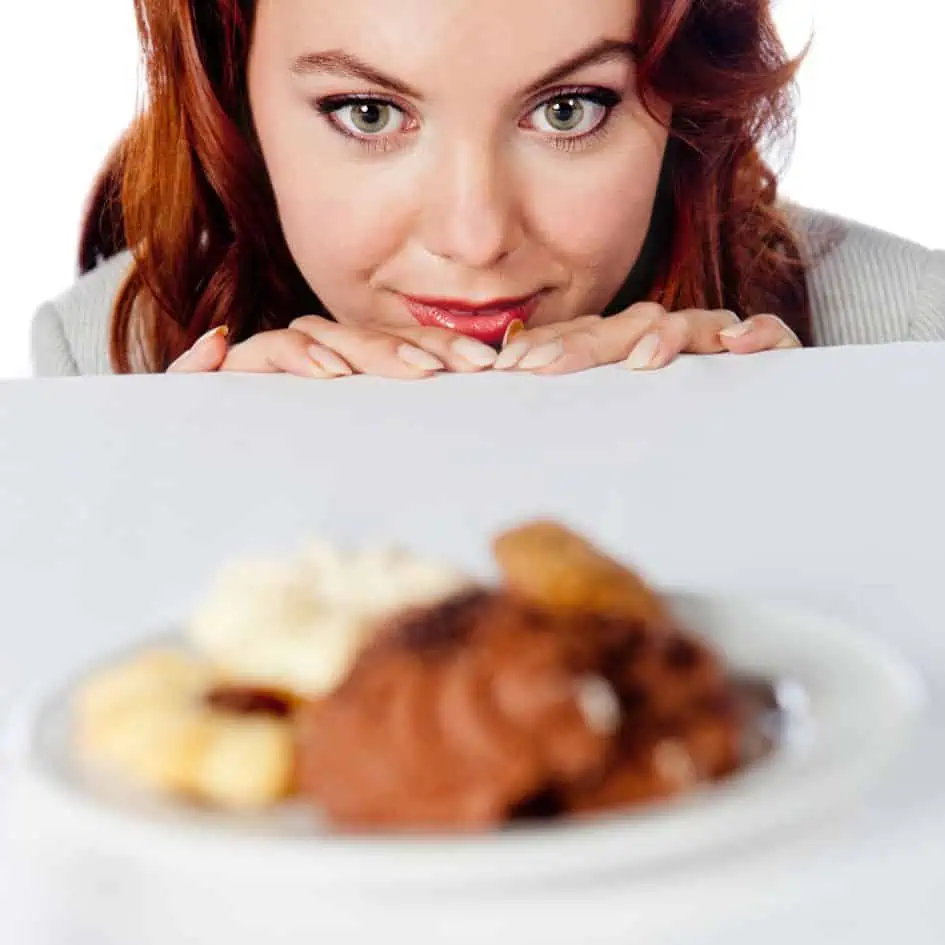
- PMS: PMS can affect your diet. You may develop cravings for more sugar and even salty foods. This is mainly due to drops and spikes in your hormones. The good news is the cravings usually subside as menstruation ends.
- Pregnancy: Hormonal fluctuations cause pregnancy cravings and aversions to certain foods. Also, nutritional deficiencies can contribute to pregnancy cravings, for different foods like pickles for low sodium, lemons for vitamin C, or ice cream and yogurt for low calcium. In addition, a heightened sense of smell and taste while pregnant can cause food cravings. But they just as easily lead to an aversion to, or an avoidance of, certain foods. Some pregnant women crave non-food items, such as dirt, metal, flakes of paint, or crayons. The medical term for this phenomenon is pica. If you experience these weird cravings, try to schedule an appointment with a healthcare provider. These cravings may be due to a deficiency in the necessary vitamins and minerals your body needs to sustain your pregnancy.
RELATED READ: The Ultimate Guide to Pregnancy Nutrition: Best Foods for Pregnancy
Bloating/weight gain
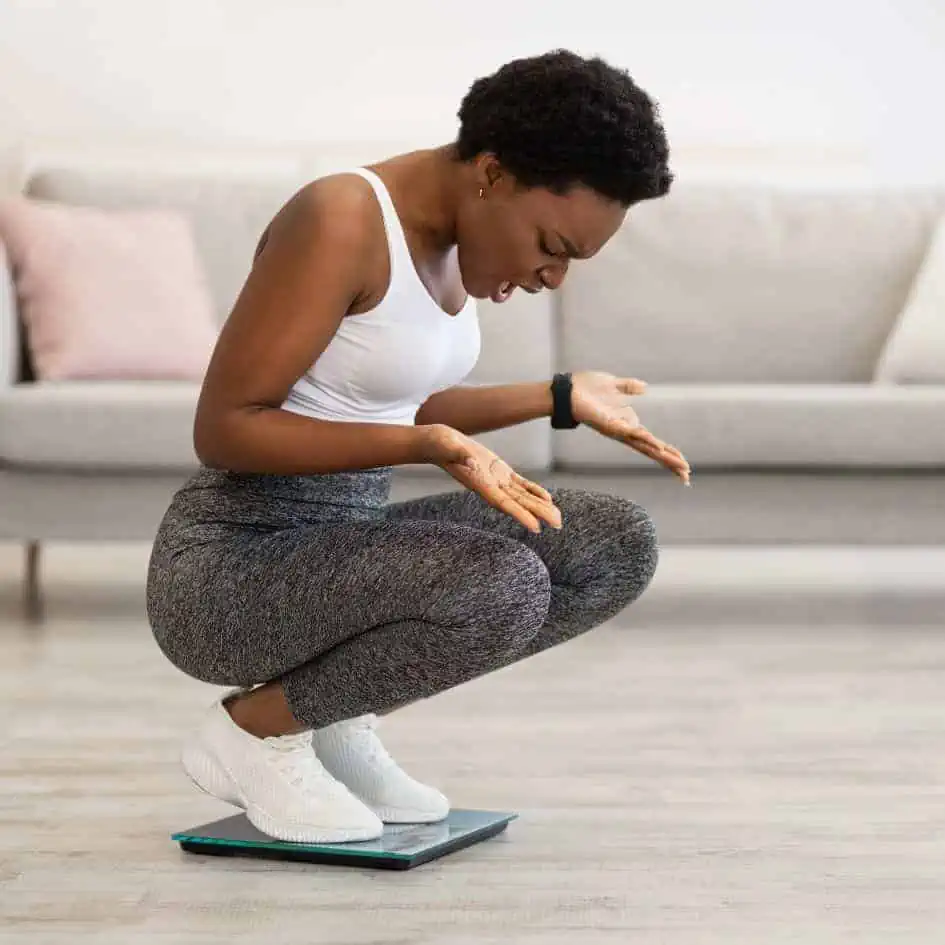
You will likely add some weight and feel bloated and gassy if you have PMS or are pregnant. You may even lose weight in early pregnancy if you experience severe nausea and vomiting.
More frequent urination
- PMS: It is the hormonal changes that cause an increase in urination during PMS. However, it gets back to normal as menstruation progresses.
- Frequent urination is very common during each trimester. In the first trimester, hormonal changes are responsible for it. During the second trimester, your baby pressing against your bladder can cause you to pee more. And in the last few weeks, when there is more pressure on your pelvic floor muscles, you may experience a little bladder leak when coughing or sneezing.
Sleep problems and pregnancy fatigue
- PMS: Sleep issues vary and can include sleeping too little or too much. If you feel a bit more tired, it is because of the changing levels of hormones like progesterone and serotonin. Fatigue associated with PMS typically goes away once your period begins.
- Pregnancy: Fatigue or tiredness can also be a sign of early pregnancy due to rising levels of pregnancy hormones as your body works to support your growing baby. Fatigue can be intense for many pregnant women (especially during the first trimester). We are talking about the “fall fast asleep on the couch at 7:30 p.m.” kind of tired. While in the third trimester, sleep becomes difficult because of their growing belly.
Nausea
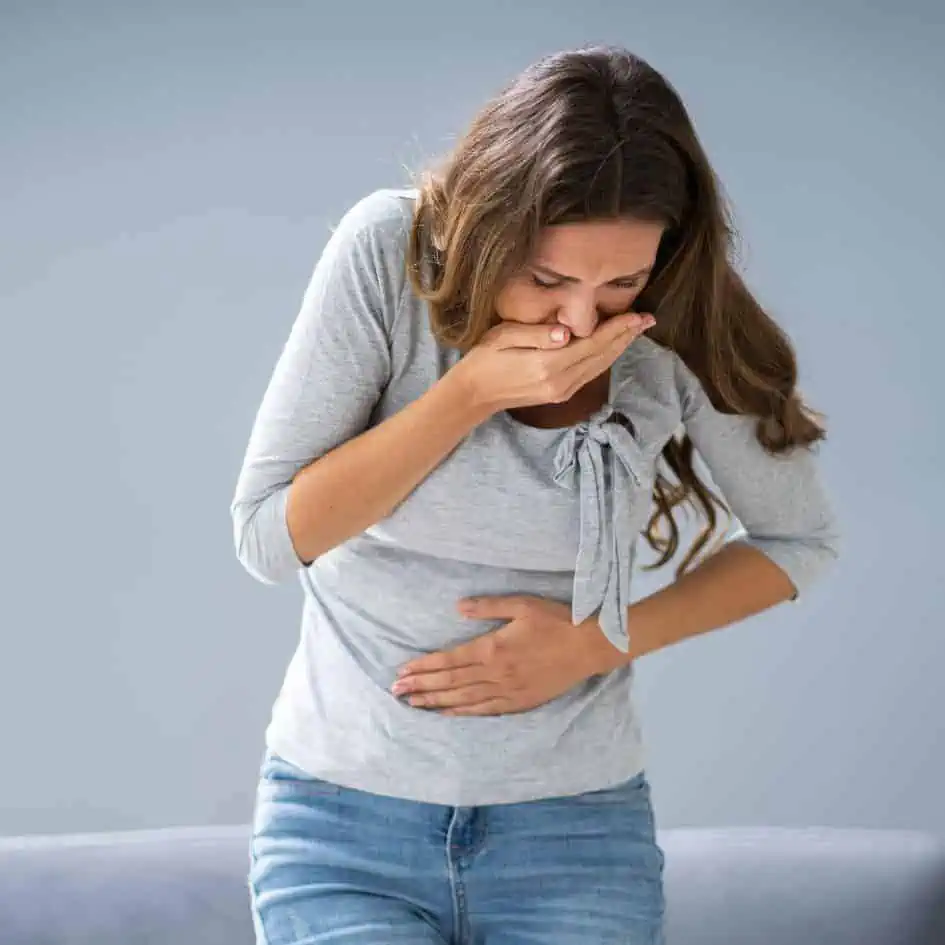
- PMS: While nausea is not a common symptom of PMS, you can experience nausea related to other issues like digestive discomfort and not feeling well.
- Pregnancy: Nausea or morning sickness is often always one of the indications of a possible pregnancy. Despite being called morning sickness, it can happen at any time of the day. You likely will experience it more during your first trimester of pregnancy. But if you are lucky, it gets better as the pregnancy progresses. Unfortunately, some others experience a severe form of nausea and vomiting throughout pregnancy, a condition called Hyperemesis Gravidarum.
RELATED READ: The Ultimate Guide To Handling Morning Sickness
Headaches
Anyone can have a headache. And it is a common PMS and early pregnancy symptom. A usual cause is fluctuations in pregnancy hormone levels. Another culprit is not drinking enough water, which leads to dehydration.
The bottom line on PMS vs pregnancy symptoms
Telling the difference between PMS and early pregnancy symptoms is sometimes a hard nut to crack because both situations are similar.
If you experience the symptoms mentioned above and are confused if it is PMS or early pregnancy, a pregnancy test may be the deal breaker.
You can take home pregnancy tests from the first day you miss your period. Some sensitive pregnancy tests can be used even before you miss a period. It is better to know sooner if you are pregnant to ensure you get the best care.
Did this article answer all of your questions on how to tell the difference between pms and pregnancy? We’d love to hear in the comments below!

